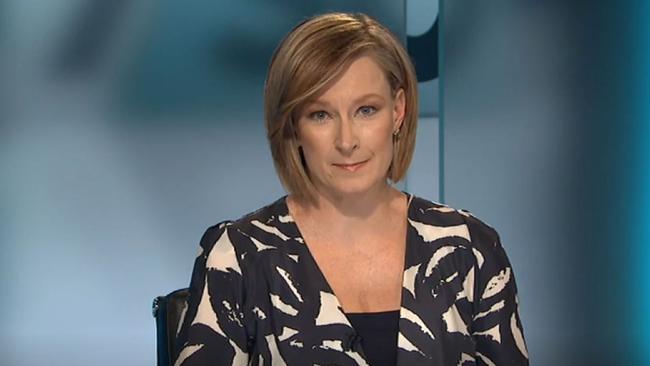High-profile journalists and politicians the target of online abuse, Twitter says
High-profile females in media and politics are most likely to be targets of abuse on Twitter, as the social media giant concedes it allows “inflammatory language” to be directed at individuals.

Social media giant Twitter said female journalists and politicians are prominent targets for abuse on their site and conceded they do permit “inflammatory or strident language” to be directed at individuals.
The Inquiry into Social Media and Online Safety continued on Friday with representatives from Twitter questioned about their policies around preventing and handling harmful content on their platform.
Inquiry chair Liberal MP Lucy Wicks used the example of ABC 7.30 Report host Leigh Sales being called a “cavorting whore” on their site and questioned why such offensive comments were allowed to be posted online.
Twitter’s director of policy Kara Hinesley told the hearing it depended on the context of the comments as to whether or not it is abusive.
“It could be violative or it could be not, that’s where that extra detail and information becomes important,” she said.
“We know this is something that is quite complex and we have dedicated teams that are working on these interactions.
“We are taking action to actually look at the behaviours that would cause harm.”
In 2020 Sales was called a “cavorting whore” on Twitter following an interview she did with Prime Minister Scott Morrison.
She called out the abuse on her Twitter account at the time describing it as, “sexualised abuse I get every time I interview a Prime Minister”.
ABC Breakfast television host Lisa Millar is another high-profile reporter who has received relentless abuse on Twitter, prompting her to deactivate her account last year.
She was accused of political bias and used a filter to stop offensive comments but was still receiving abuse online while her account was active.
Ms Hinesley told the hearing they had been working with the public broadcaster to try and resolve the issues including online abuse.
“We’ve worked with the ABC in a number of regards, being very cognisant and aware and alive to the fact we are seeing trends that are attacking both female journalists and also female politicians,” she said.
Twitter said they multiple avenues for people – those who are on Twitter and those who are not – to lodge complaints regarding abusive content.
Ms Hinesley also said they have been working on technology to reduce abuse online and in the past two years 65 per cent of reports lodged with the content moderation teams for review have come from automated technology.
“We are trying to move that burden off people who have been overwhelmed or under pressure from abuse happening on the platform,” she said.
She said they have multiple policies that deal with harmful content including their Abusive and Harassment policy and Hateful Conduct policy.
At the hearings earlier in the week it heard evidence from many social media companies including Google Australia and Meta (owner of Facebook and Instagram) about their policies relating to harmful content online.
Broadcaster and journalist Erin Molan also gave evidence about abusive comments she received online including one threat to rape her two-year-old daughter.
Facebook admitted it lost her original complaint and only took action once police were involved.
The findings from the inquiry will be handed down in a report that will be tabled in parliament on February 15.




To join the conversation, please log in. Don't have an account? Register
Join the conversation, you are commenting as Logout